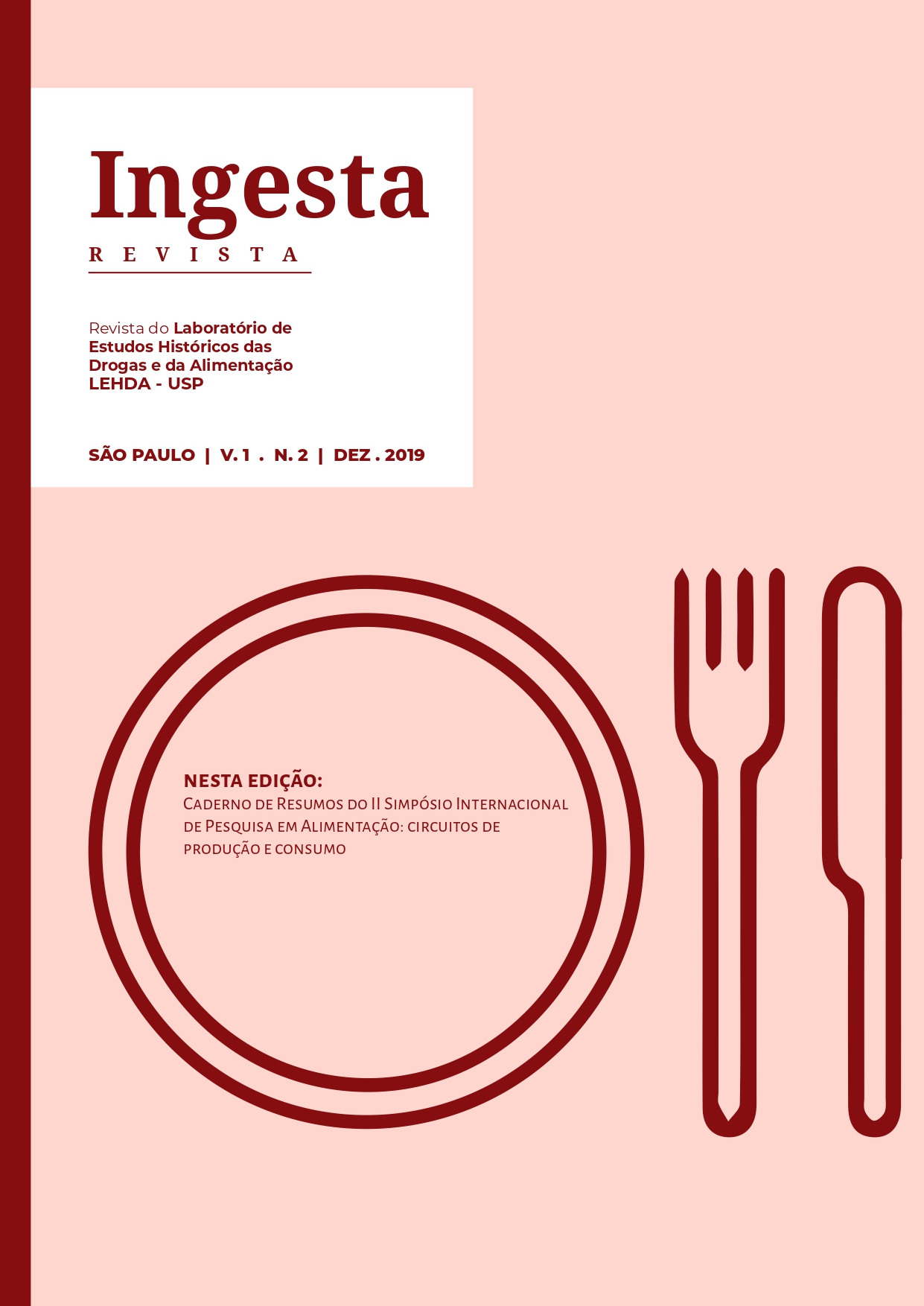Um evento bilíngue (inglês-francês) ocorrerá na McGill University, em Montreal, entre os dias 20 de Setembro e 1º de Outubro de 2017. As inscrições podem ser feitas por este link. Abaixo a descrição do evento:
—
Food is a medium. Like conventional examples of media, food carries both content and relational messages that are produced, distributed, and consumed frequently and widely. As content, foods are the literal vehicles for delivering messages that are subsequently decoded and digested into meaningful units. Once absorbed, food-as-content can then be repurposed and mobilized by bodies, recirculating nutrients where needed. Fermented foods, in particular, act as a medium that interfaces between humans, microbes, and microbial foods. As a transformative process, fermentation incorporates multiple species, multiple senses, and multiple scales. As a metaphor, it operates as a productive figure for speculation and experimentation. Fermented foods also carry meaning and, as such, play into the relational and identity politics of the everyday eater. Here, a feminist lens provides a complex understanding of how the material and the discursive are constructed in and through food rituals, performatives, and customs. Where heteronormative ideologies dictate and prescribe, feminism and fermentation are grounded in the affective, the sensorial, and the peripheral. Thus, food, fermentation, and feminism literally and metaphorically figure into each other.
We follow McLuhan’s broad interpretation of a medium to mean “that [which] shapes and controls the scale and form of human association and action” (McLuhan, 1964, p.2). Based on this lenient definition of a medium: How do food and ferments mediate and (re)negotiate questions of access, subversion, transformation, and agency? How can fermentation render alternative modes of mediating and processing? How do feminist accounts of the body or feminist modes of care shape scholarly work in food and/or ferments? How can the applied work of makers and mediators, coupled with the theoretical work of scholars fabulate a more plural and just future? How do food, fermentation, and feminism fold into one another?
At the core of each of these domains --food, fermentation, and feminism-- are binaries that animate dominant paradigms and power structures. Food is characterized by good/bad aesthetics, health/junk parameters, gourmet/street, and conventional/organic ideologies. Fermentation deals with human/nonhuman, self/other, and mind/body dualisms. Lastly, feminism is equally haunted by gender binaries, public/private spheres, productive/reproductive labor, affect/intellect, though many feminist scholars are actively collapsing these to propose alternate framings. We ask the question, what are the intersections between fermentation and feminism? How can material and discursive shifts in gender, germination, and gastronomy be leavened with the type of complexity that supports social change?
Some topics of interest include (but are not limited to):
- foods performing feminism, or vice versa
- fermentation as a feminist intervention
- transformative media
- intersectionality and ferments
- the gendering of food/ferments
- notions of gender/contamination
- nourishment and/or feminist notions of care
- bodies as unbound and porous
- microbial agency and relational politics
- heteronormativity and ferments
- disruptive mediations
- ferments and questions of scale
- food, fermentation, and intimacy
- gustatory/sexual consumption
- food, participation, and agency
- circulation of affect in food movement
- food activism and materiality
- radical media and microbes
- changing gender roles over who is brewing/ fermenting/ performing this labor
We welcome abstracts/proposals from a variety of fields, including communication studies, gender studies, cultural studies, history, anthropology, sociology, English, art, political science philosophy, life sciences, as well as other disciplines. We hope to gather ideas from a broad geographic range. Submissions can be in English and in French.
Additionally, a select number of papers presented at the conference will be considered for publication in a peer-reviewed academic journal.
deadline for abstracts & proposals was Wednesday August 16, 2017
Conference Organizers / Guest Editors
Alex D. Ketchum, PhD candidate Department of History, McGill University
Maya Hey, PhD student Department of Communication Studies, Concordia University
(la version française)
La nourriture est un média. La nourriture, tout comme les autres médias plus traditionnels, transmet, produit, et véhicule des messages relationnels, ces derniers pouvant être consommés à petites et grandes échelles. La nourriture est aussi un contenu : d’une part, contenu au sens de message à communiquer, mais, d’autre part, littéralement, contenu, au sens de ce qui est dans un contenant. La nourriture constitue un véhicule pour les messages à décoder et à digérer, desquels on retire un certain sens. Une fois absorbée, la « nourriture-comme-contenu » peut alors être utilisée par le corps, qui en retire les nutriments au besoin. Les aliments fermentés, en l’occurrence, constituent un type de ‘média’ particulier, là où se rencontrent les humains, les microbes et les aliments d’origine microbienne. En tant que processus de transformation, la fermentation recoupe un certain nombre d’espèces, de sens, et elle s’effectue à différentes échelles. En tant que métaphore, la fermentation rappelle la spéculation et l’expérimentation. Les aliments fermentés sont porteurs de sens et peuvent donc jouer un rôle dans les échanges relationnels et individuels du consommateur moyen. Un regard féministe permet d’élucider comment le matériel et le discursif sont construits à travers divers rituels alimentaires, diverses performances, et diverses coutumes. Alors que les idéologies hétéronormatives dictent et prescrivent, le féminisme et la fermentation sont ancrés dans l’affectif, le sensoriel, et la périphérie. La fermentation, le féminisme, la nourriture : une boucle qui se boucle tant sur le plan métaphorique que littéral.
Dans chaque domaine – l’alimentation, la fermentation, et le féminisme – on y retrouve des concepts binaires qui animent les paradigmes et les relations de pouvoirs. L’alimentation est souvent qualifiée comme étant « saine » ou « bonne » / « malsaine » ou « mauvaise ». Les aliments sont « bons » ou « mauvais », « gastronomes » ou « bas de gamme » ou même « street », « transformés » ou « bios ». La fermentation, quant à elle, c’est le soi et l’autre, l’humain et le non-humain, le corps et l’esprit. Le féminisme est préoccupé par des conceptualisations binaires telles que le public et le privé, le travail productif et reproductif, l’affect et l’intellect, mais de plus en plus, les chercheurs et chercheuses dans ce domaine tente de démanteler ces concepts binaires. Nous nous intéressons donc aux questions suivantes : quels sont les intersections ou les croisements conceptuels entre la fermentation et le féminisme? Comment peut-on engendrer des changements sur les plans matériels et discursifs de manière à favoriser le progrès social, et ce, tout en ayant une appréciation complexe de ces diverses mutations?




